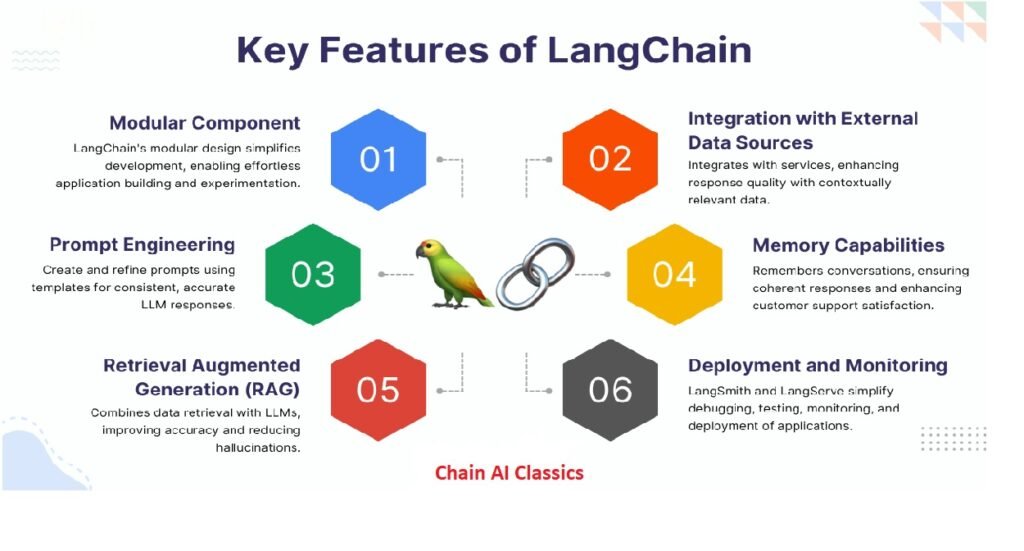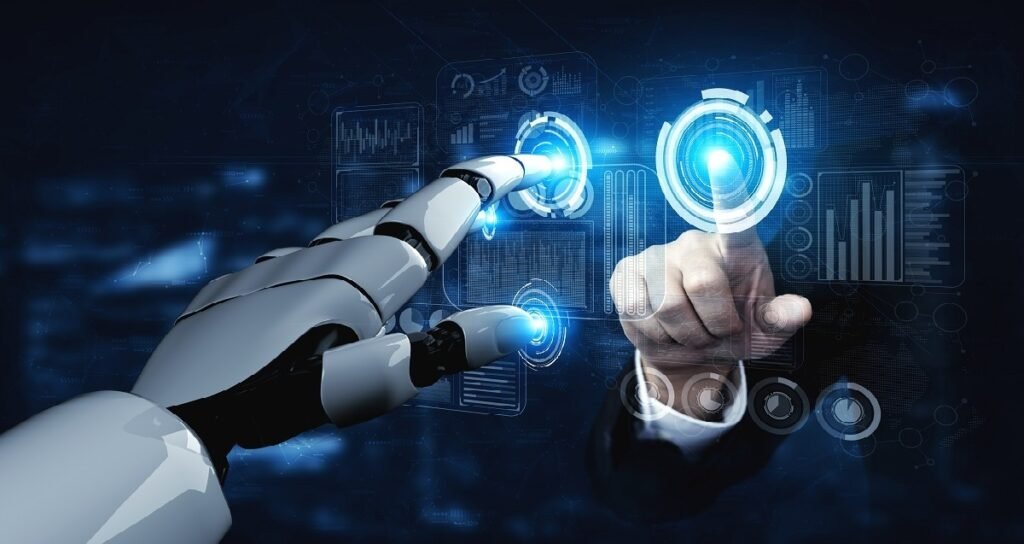“Over the past few years, artificial intelligence (AI) has rapidly advanced, leaving its mark across a wide range of industries, including healthcare, finance, entertainment, and security.” However, one of the most captivating intersections of AI and human ingenuity lies in the domain of strategic games, especially within what’s now emerging as Chain AI Classics. But what exactly are Chain AI classics? Why are they making headlines in 2025? And how are they reshaping our understanding of both gaming and AI?
Let’s dive deep into the world of Chain AI Classics and uncover their origin, importance, impact, and future potential.
What Are Chain AI Classics?

Chain AI classics are a curated series of AI-driven games, strategies, and simulations that represent significant milestones in the development of artificial intelligence. The term refers to:
- Historical benchmarks where AI first defeated humans in complex games like chess and Go.
- Contemporary games and environments where chain reasoning and multi-step planning are essential for AI to succeed.
- Educational and research tools used in AI development and machine learning training.
The “chain” in Chain AI typically refers to the chain-of-thought reasoning that AI models employ to simulate human-like logic and decision-making over a sequence of actions.
The Origin of Chain AI Classics
From Chess to AlphaGo
AI’s journey into the world of gaming began with IBM’s Deep Blue, which defeated world chess champion Garry Kasparov in 1997. This historic event marked one of the first Chain AI classics, where AI demonstrated the ability to process and plan multi-move strategies better than human grandmasters.
The second major milestone came in 2016, when Google DeepMind’s AlphaGo defeated Lee Sedol, a world champion Go player. Go is a game exponentially more complex than chess, and AlphaGo’s win showcased deep neural networks combined with Monte Carlo Tree Search—a foundational chain AI technique.
Key Features of Chain AI Classics
1. Chain-of-Thought Reasoning
At the core of Chain AI classics is chain-of-thought (CoT) reasoning. It allows AI to:
- Break down complex problems into manageable parts
- Analyze each step logically
- Plan actions ahead rather than react impulsively
This is similar to how a human might solve a puzzle by considering previous moves and anticipating future consequences.
2. Reinforcement Learning
Many Chain AI classics rely on reinforcement learning (RL)—a type of machine learning where agents learn by trial and error. Each success is rewarded, and each failure is penalized, allowing the AI to evolve smarter strategies over time.
3. Simulated Environments
Chain AI classics often exist in simulated game environments, where conditions can be manipulated to test different AI behaviors. These include:
- OpenAI’s Gym platform
- Unity ML Agents Toolkit
- DeepMind Lab
Notable Chain AI Classic Games
Here are some of the most influential Chain AI classic games that have shaped the industry:
Chess (Deep Blue vs. Kasparov)
- Year: 1997
- AI System: IBM Deep Blue
- Significance: First AI to defeat a reigning world chess champion
- AI Approach: Brute force search with evaluation functions
Go (AlphaGo vs. Lee Sedol)
- Year: 2016
- AI System: Google DeepMind AlphaGo
- Significance: Proved neural networks could master intuitive, abstract thinking
- AI Approach: Deep reinforcement learning, tree search
Dota 2 (OpenAI Five)
- Year: 2019
- AI System: OpenAI Five
- Significance: First AI to defeat top-ranked professional teams in a real-time strategy game
- AI Approach: Proximal Policy Optimization, team-based coordination
StarCraft II (AlphaStar)
- Year: 2019
- AI System: AlphaStar by DeepMind
- Significance: Mastery of real-time micromanagement and long-term strategy
- AI Approach: Multi-agent reinforcement learning with long-horizon planning
Minecraft (MineDojo)
- Year: 2022
- AI System: MineDojo by NVIDIA
- Significance: Open-ended learning in sandbox games using natural language commands
- AI Approach: Multimodal learning using vision, text, and reinforcement
Why Chain AI Classics Matter
They Benchmark AI Progress
Each Chain AI classic represents a benchmark in AI capabilities. They help researchers understand how well AI can:
- Reason like humans
- Plan multiple steps ahead
- Handle ambiguity and adapt
They Advance General AI
While narrow AI systems specialize in one task, Chain AI classics often involve general reasoning skills that can transfer across domains. This is a stepping stone toward Artificial General Intelligence (AGI).
They’re Excellent Educational Tools
Universities and online platforms like Coursera, edX, and Udemy now offer courses based on Chain AI classics. These help students and professionals:
- Understand machine learning concepts
- Build their own AI models
- Experiment with AI strategies
Chain AI Classics in Modern Education
AI Challenges and Competitions
Today, many Chain AI classics form the basis for global competitions, such as:
- Kaggle Competitions (AI in games)
- AI Dungeon Hackathons
- NeurIPS Challenges
These competitions encourage innovation in:
- Multi-agent systems
- Collaborative AI
- Ethical decision-making
Research Papers and Academic Studies
Many top universities—including MIT, Stanford, and Oxford—use Chain AI classics in their AI curricula and published research. Topics of focus include:
- Cognitive modeling
- Multi-modal AI
- AI safety and alignment
Ethical Concerns Surrounding Chain AI Classics
Despite their benefits, there are growing concerns around the use of AI in such intelligent environments:
1. Unintended Behavior
AI can sometimes exploit bugs or rules in the environment to win. This shows that AI doesn’t “understand” like humans—it optimizes for the reward, even if the means are unethical.
2. Data Bias
AI models trained on biased data may exhibit undesirable behaviors. Developers need to ensure fair and inclusive datasets for training.
3. Human Job Displacement
As AI gets better at strategic decision-making, industries like finance, operations, and even creative fields may see automation of roles once considered uniquely human.
The Future of Chain AI Classics
Integration with Real-World Decision-Making
The techniques perfected in Chain AI classics are now being applied to:
- Autonomous driving
- Healthcare diagnostics
- Logistics and supply chain planning
- Military simulations
Evolution Toward AGI
Chain AI classics are training grounds for building more general-purpose AI agents. These agents might one day operate in open-ended, real-world environments with minimal human intervention.
Enhanced Collaboration Between Humans and AI
Future Chain AI systems may not replace humans but work alongside them, improving team-based decision-making in fields like:
- Surgery
- Disaster response
- Financial forecasting
How to Get Involved in Chain AI Classics
If you’re inspired by the world of Chain AI, here are a few steps to get started:
Learn the Basics
- Study machine learning and neural networks using courses on Coursera or edX.
- Read classic books like “Artificial Intelligence: A Modern Approach” by Stuart Russell & Peter Norvig.
Explore Chain AI Platforms
Try hands-on experimentation with:
- OpenAI Gym
- Unity ML Agents
- Google Colab notebooks for reinforcement learning
Build Your Own AI
Start small with environments like:
- Tic-Tac-Toe AI
- 2048 Game Solver
- Then scale up to more complex Chain AI classics.
Join the Community
Engage with online forums and open-source communities such as:
- Reddit’s /r/MachineLearning
- Kaggle discussion forums
- GitHub repositories on Chain AI games
Conclusion: Why Chain AI Classics Are a Game-Changer
In summary, Chain AI classics represent the heart of AI evolution in strategic thinking and long-horizon planning. They aren’t just games—they are training grounds for the next generation of intelligent agents. These classics have taught us that:
- AI can beat world champions at their own games.
- Reasoning chains matter in creating more intelligent systems.
- The future of AI will depend on mastering these environments.
Whether you’re a student, researcher, or hobbyist, understanding and engaging with Chain AI classics is a gateway to the future of artificial intelligence.
Read also https://magazinesnove.com/manifestation


